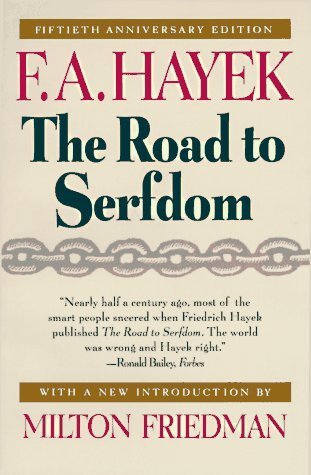


And in fact, the popularity of it was so widespread, it was not an academic debate. So for most of the intellectuals of socialism, socialist planning was viewed as a middle way and a way towards the future. The alternatives that were in Europe-the rise of fascism, the communist revolution in the Soviet Union-these didn't seem to be particularly attractive alternatives to liberalism. It looked like capitalism had just simply collapsed and was no longer a viable approach to an economic system. Tyler Smith: Who was Hayek arguing against? Can you take listeners back and explain the intellectual environment in which Hayek was writing The Road to Serfdom?īruce Caldwell: Hayek comes to London from Vienna in 1931, gives some lectures, ends up getting a position at the London School of Economics, engages in debates with Keynes in the early part of the 1930s and with socialists. The full interview can be heard by using the podcast player. The edited highlights of that conversation are below. Just as important, Caldwell’s research shows the importance of digging into the origins of economic debates.Ĭaldwell recently spoke with the AEA’s Tyler Smith about the intellectual backdrop to The Road to Serfdom, the challenges of writing for a wider audience, and the history of economic ideas. He sets the record straight in the September issue of the Journal of Economic Literature by expanding on Hayek’s thinking and the intellectual climate in which Hayek was writing. Since its publication in 1944, it has been cited by many leaders and politicians as a proof that countries that experiment with socialism will inevitably end up as totalitarian states.īut Duke economist Bruce Caldwell says that Hayek’s message in that famous work was often misinterpreted by contemporaries and later generations. However, Hayek is most well-known for his book The Road to Serfdom. DickClarkMises at English Wikipedia., CC BY-SA 3.0, via Wikimedia Commonsįriedrich Hayek, one of the giants of 20th century economics, did important work on everything from business cycles to psychology, earning a Nobel Prize in economics in 1974.


 0 kommentar(er)
0 kommentar(er)
